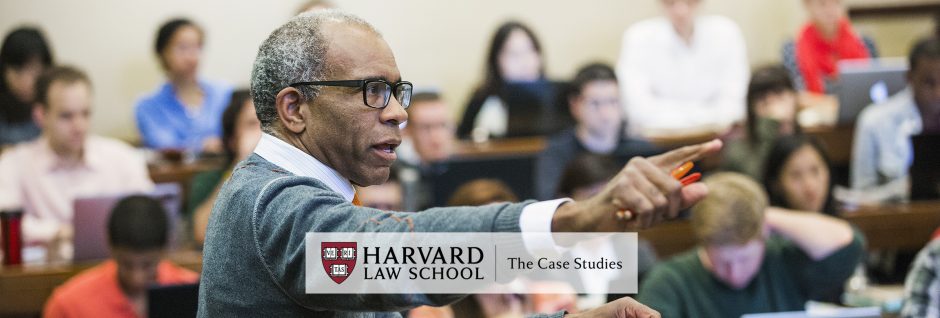New Products:
Sponsorship at Wilmer Cutler & Pickering (A): Yoon-Young Lee
Sponsorship at Wilmer Cutler & Pickering (B): The Sponsor’s Perspective
Lisa Rohrer is a seasoned case writer and the Executive Director of the Case Development Initiative at Harvard Law School. She co-wrote CDI’s latest two-part case study, Sponsorship at Wilmer Cutler & Pickering, about a junior attorney who received transformative guidance and opportunity through the sponsorship of a senior colleague.
Visit our website to download the A and B cases, but first, hear from Dr. Rohrer about the value and energy of the new case:
EM: What inspired the case study?
LR: The topic of sponsorship is a great way to provide perspective on two pressing issues facing law firms today: the training of junior attorneys and diversity. While many law firms have had mentoring programs for some time, sponsorship is a much newer concept. A sponsor is someone who doesn’t necessarily provide emotional support to a younger colleague but actually will put their own reputation on the line by opening doors to opportunities that the younger attorney may not have otherwise had access to. Sponsorship is often used in the context of diversity programs (to help women and minority attorneys gain more visibility with clients and powerful partners) but it’s not strictly a diversity issue. It is also a tool to think about talent development and ways can law firms promote younger attorneys in an environment where many clients are looking for “grey hair” and experience.
Scott Westfahl (faculty director of HLS Executive Education) and I had the idea to write a case about sponsorship but needed a subject. So we reached out to a friend of ours, Ida Abbott, who just finished writing a book on the topic to see if she had come across any stories that would make a good case study. She is the one who introduced us to Yoon-Young Lee at WilmerHale (the new name for the Wilmer Cutler & Pickering firm after a merger a few years ago). Lee, coincidentally, was a classmate of Scott’s at HLS in the 1980s. It was a fun connection to make and this link helped to facilitate the initial conversations.
EM: What challenges and opportunities did the case writing process present?
LR: My co-author Nathan Cisneros and I thought for a long time about how to present the case study in a way that would promote the most learning in a classroom environment. Yoon-Young had suggested we speak to a number of people who had worked closely with Ted Levine, her sponsor. We ended up with a lot of great stories and needed to decide how much of the case should be centered around Yoon-Young’s relationship with Ted and to what extent we should bring in these other voices. We ultimately decided to frame the case from her perspective and use quotes from the other interviews to help paint a picture of Ted’s work style and leadership.
As it turned out, the people who Yoon-Young referred us to are all really influential lawyers. Two of them are GCs of major financial organizations and others are practice leaders in big prestigious firms. Yoon-Young herself has been on the executive committee at WilmerHale for over ten years. This aspect of the case was unexpected and makes for a great point of discussion because the people who worked with Ted are not only great lawyers, but also have emerged as leaders in the profession. Of course we’ll never know how much Ted is responsible for their success, but they all certainly expressed to us that they felt he contributed significantly to their professional development.
EM: How did the students react to the case study? Did anything surprise you in the classroom? Any memorable experiences?
LR: One thing that surprised us a bit in the classroom was how strongly students felt (both positively and negatively) about Ted’s work style. We’ve taught the case with law firm professional development professionals and they were also split in terms of their evaluation of his approach. We have been really pleased to see what a vigorous discussion ensues as we debate the pros and cons of a style that is less about making the associate feel good and more about pushing them intellectually and sometimes emotionally. For people who have an initial distaste for Ted’s style, it’s been interesting to watch them change their mind as we work through the benefits of his approach. You can sometimes notice the light bulbs going on as they start to see a different perspective, which is really rewarding.
EM: What, if anything, would you do differently next time?
LR: One of the aspects of the relationship between Yoon-Young and Ted is that is grew pretty organically. It’s not something a firm could have engineered. We’d like to eventually pair this case with a second case that examines a law firm’s attempts to create a culture of sponsorship that would help promote women and minorities. In writing the case, we saw the opportunity to provide another case about what firms can do to more actively promote sponsorship behavior.
